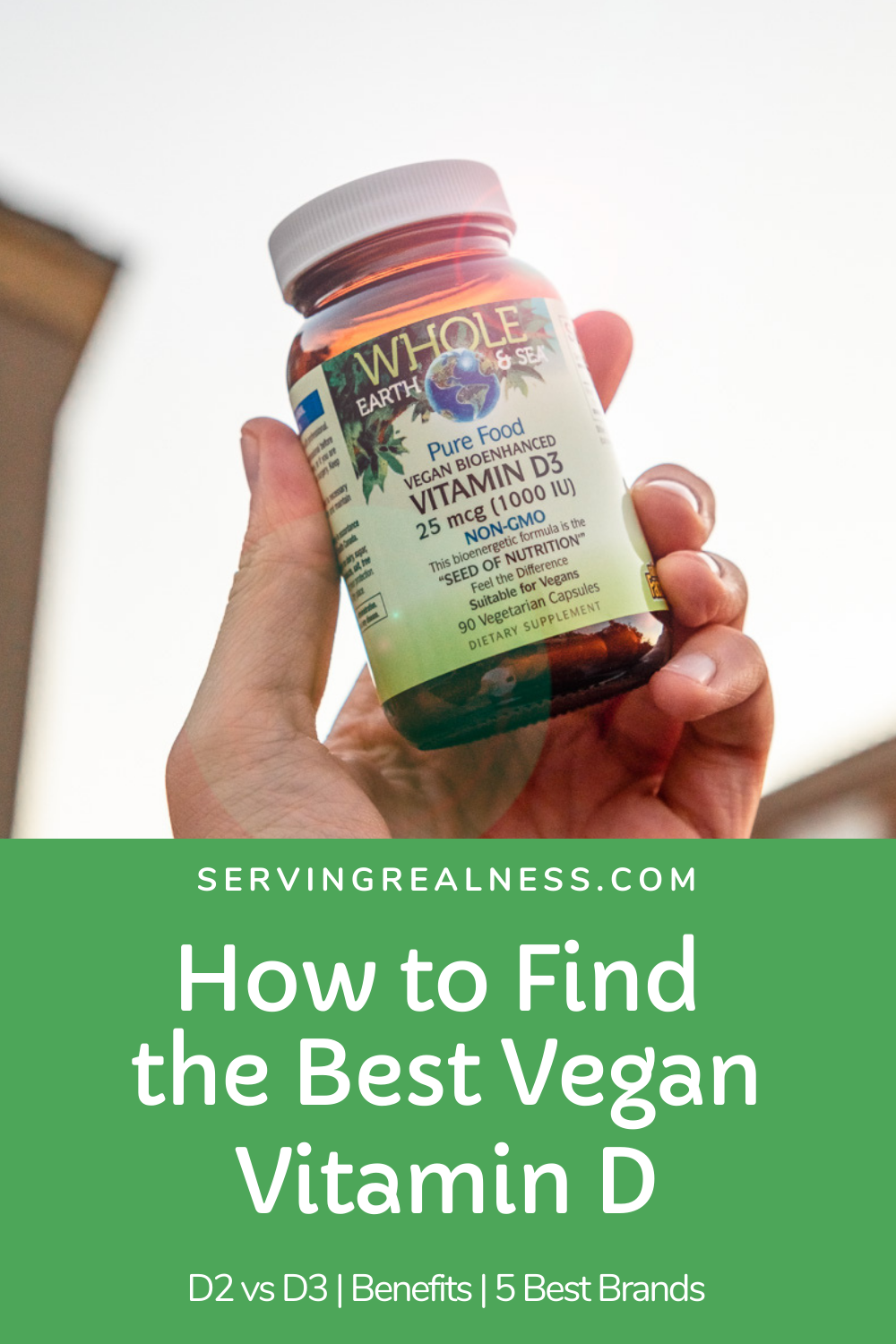How to Find the Best Vegan Vitamin D (+5 Best Brands)
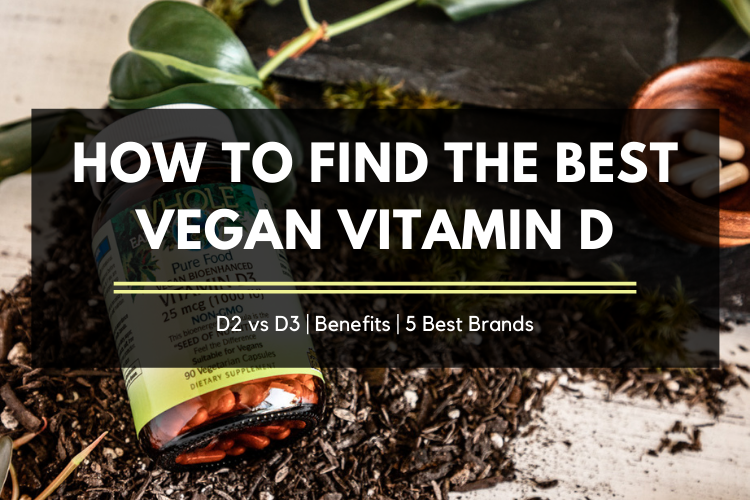
Finding a quality vitamin D can be a daunting task… finding a good vegan Vitamin D? Without help, it’s a total mystery! Fish oil, sheep’s wool, D3 vs D2, and a whopping 42% of Americans deficient… Don’t fret, this guide to Vitamin D for vegans covers everything!
Wanting to skip all the sciency-stuff and go right to my favorite brands? Just click here
Everything Contained in this Guide to Vegan Vitamin D
- What Is Vitamin D and Why Is It So Important?
- COVID-19 + Vitamin D Update
- Need to Know Facts
- D3 vs D2: Which is the Best for Vegans?
- Let’s Talk About Vitamin D Doses
- What about Sunlight?
- Finally: My Favorite Vegan Vitamin D Brands Revealed
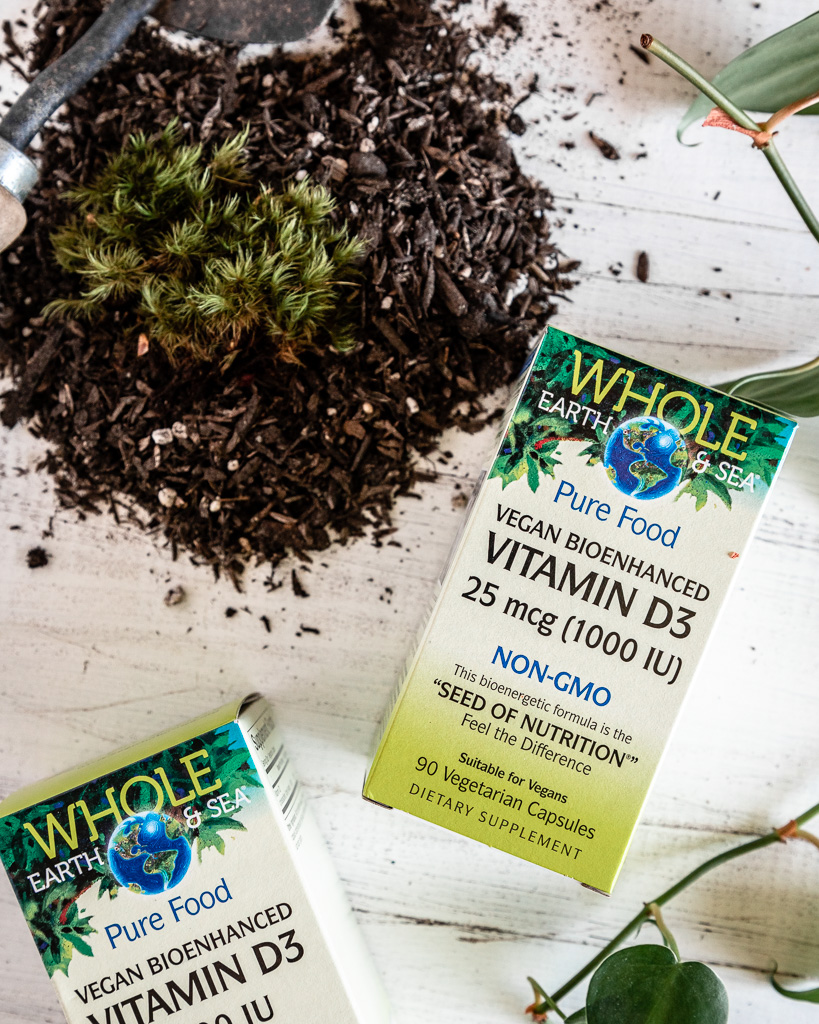
What Is Vitamin D and Why Is It So Important?
First, let’s start with the basics.
“What is Vitamin D and where does it come from?”
Notice anything missing?
- Your own body (with some help from the sun), and
- Plant-based sources (namely: Lichen)
That’s right:
I’m starting a product review off by saying you can get what’s inside the bottle for free, with your own body.
Unfortunately, there are some caveats (more on this later).
COVID-19 + Vitamin D Update:
As if we didn’t love Vitamin D enough, new studies are showing:
And now, we also have have Dr. Fauci recommending vitamin D for anyone deficient… Which, remember: is around 42% of Americans.
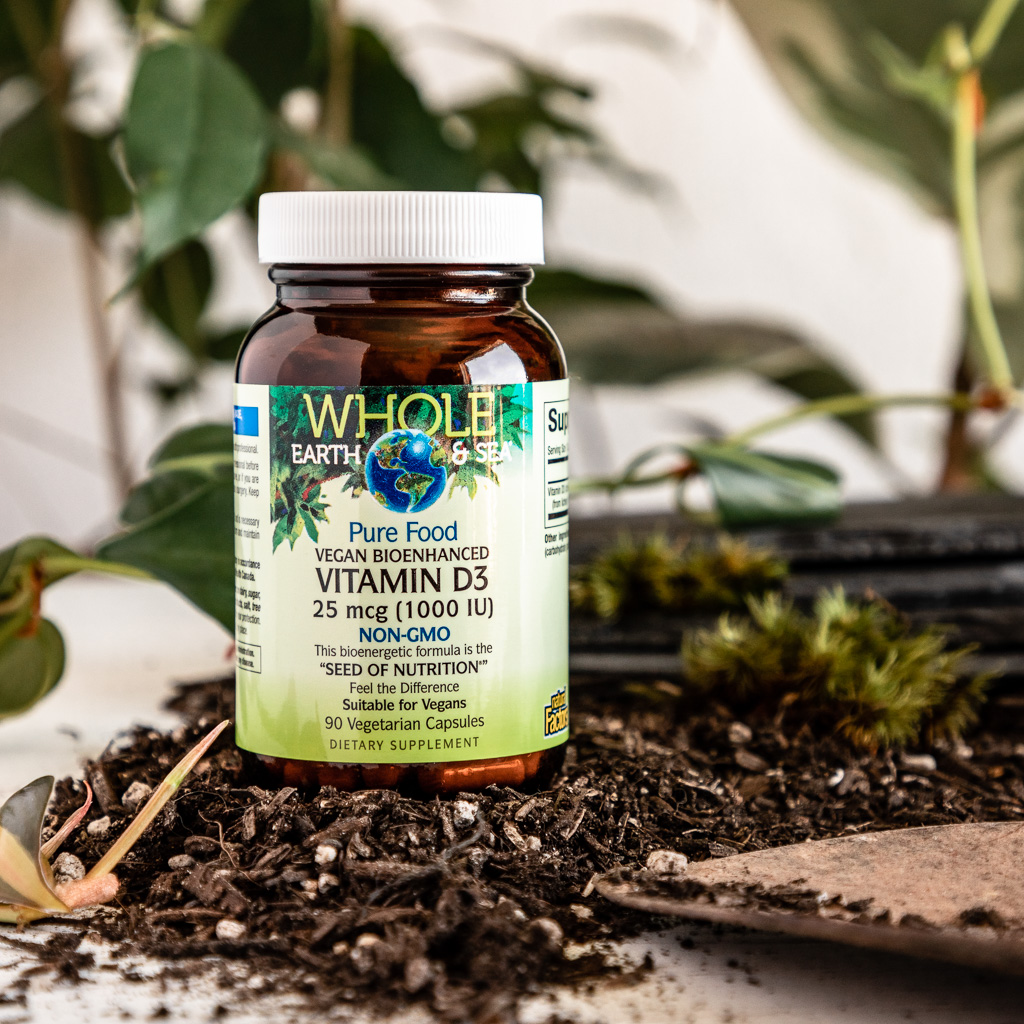
First: What do you need to know before we go any further?
- As implied earlier, the majority of Vitamin D sources aren’t vegan
- Not everyone can absorb Vitamin D equally… and that can be a little scary considering our bodies rely on it so heavily.
- Vitamin D is known to assist with a wide range of systematic functions, including:
- Lastly: Vitamin D is a fat-soluble vitamin so it is possible to overdo it (more on dosage later)
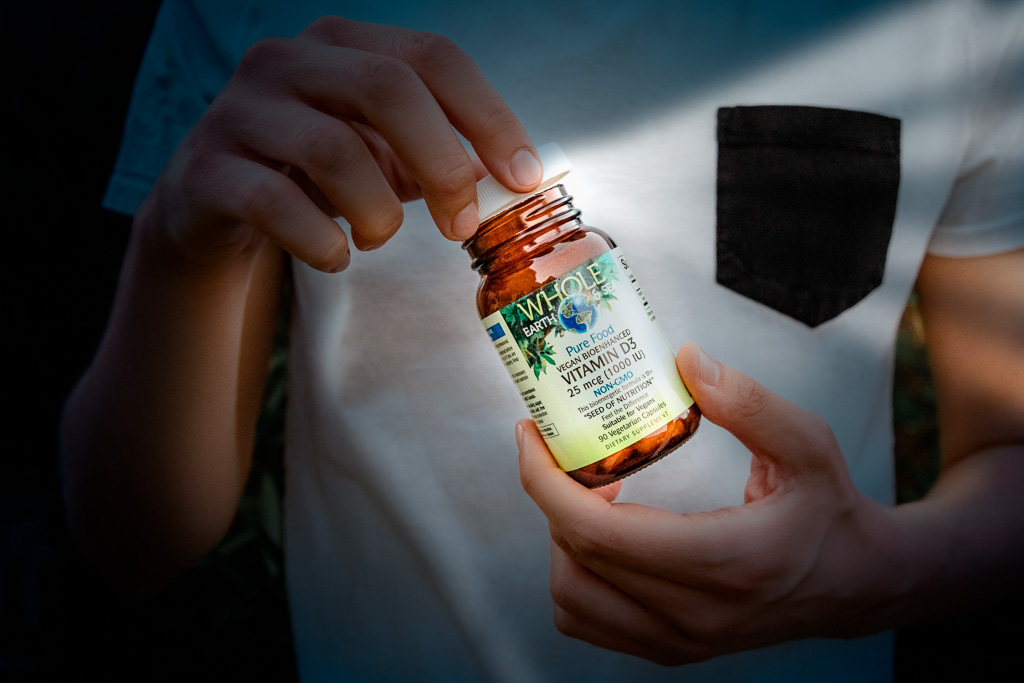
D3 vs D2 – Which is the Best for Vegans?
First off:
The most confusing thing about vegan Vitamin D is there are two different forms:
- Vitamin D2 – calciferol
- Vitamin D3 – cholecalciferol
But, what does this mean for you and your vegan Vitamin D?
Well, originally: all known sources of D3 were derived from animal products.
This left vegans stuck with the less-preferred Vitamin D2.
Have things changed since then?
Luckily, the research has been updated, just a bit.
First, and most impactfully:
Scientists have since:
- Discovered,
- Cultivated, and
- Mass-produced a vegan source of D3 (finally!).
As we mentioned before, this is a vegan Vitamin D3 from Lichen… (A moss/fungi type organism that grows on bark, leaves, and mosses.)
This means that vegans now have a choice between the two sources… Yay!
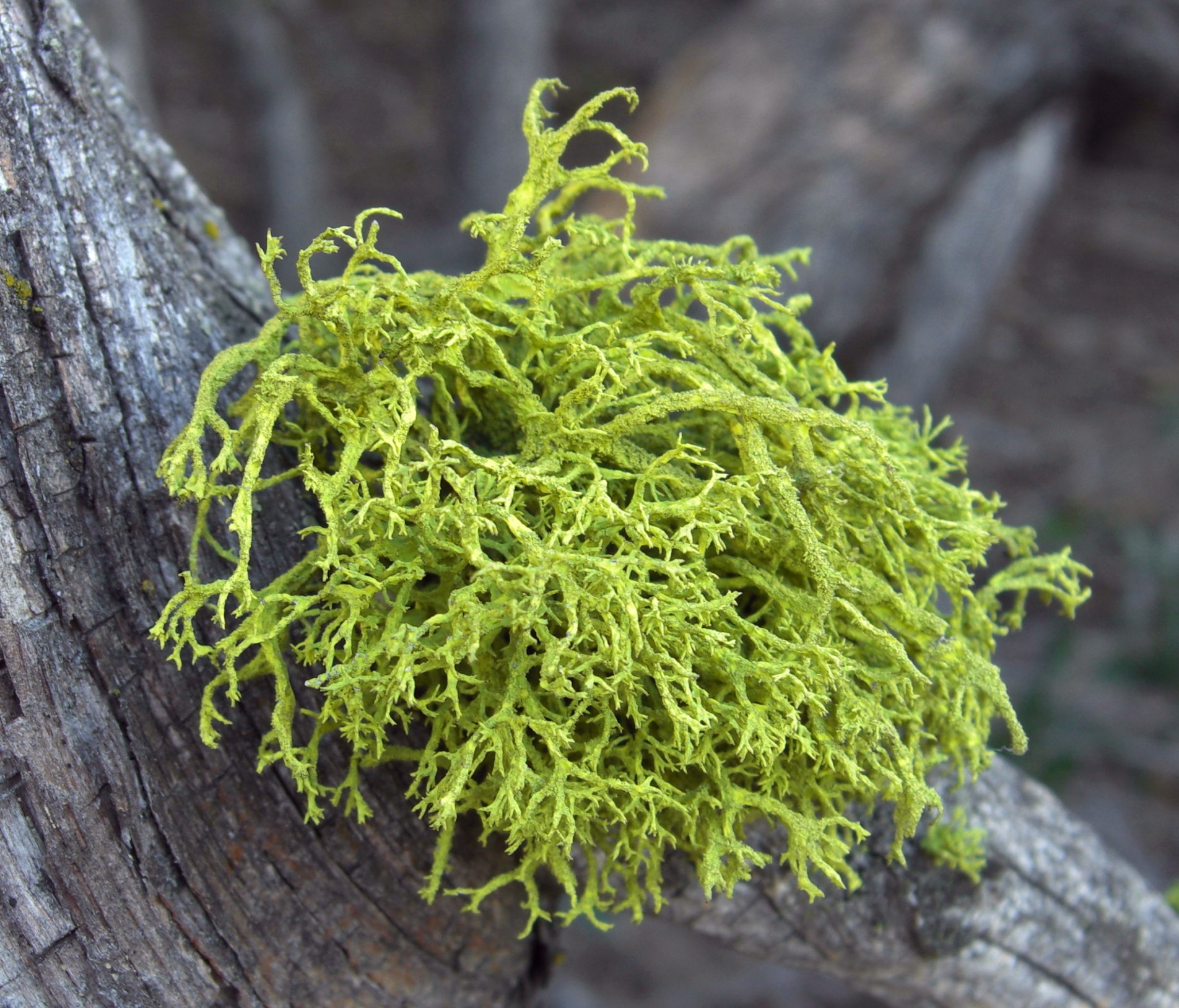
Example of a type of Lichen
(© Jason Hollinger – Mushroom Observer, CC BY-SA 3.0, Link)
But has research concluded which is better after all these years?
Unfortunately, not.
Long story short:
A lot of research goes back and forth…
But, from what I can find most recently: researchers are still favoring D3. This is especially true at high doses.
Even more troubling:
A majority of this research revolves around whether “one single very large dose” of vitamin D2/D3 affected blood levels.
What’s wrong with this?
D3 is proven to work at higher, massive doses… but that’s not the information we need:
We need a study measuring long-term Vitamin D supplementation.
My solution?
I stick with vegan Vitamin D3 because that’s what has (so far) shown the most promise in the research setting.
In short: we need more research and can re-evaluate our preferences when that happens. For the time being, D3 is still favored by researchers.
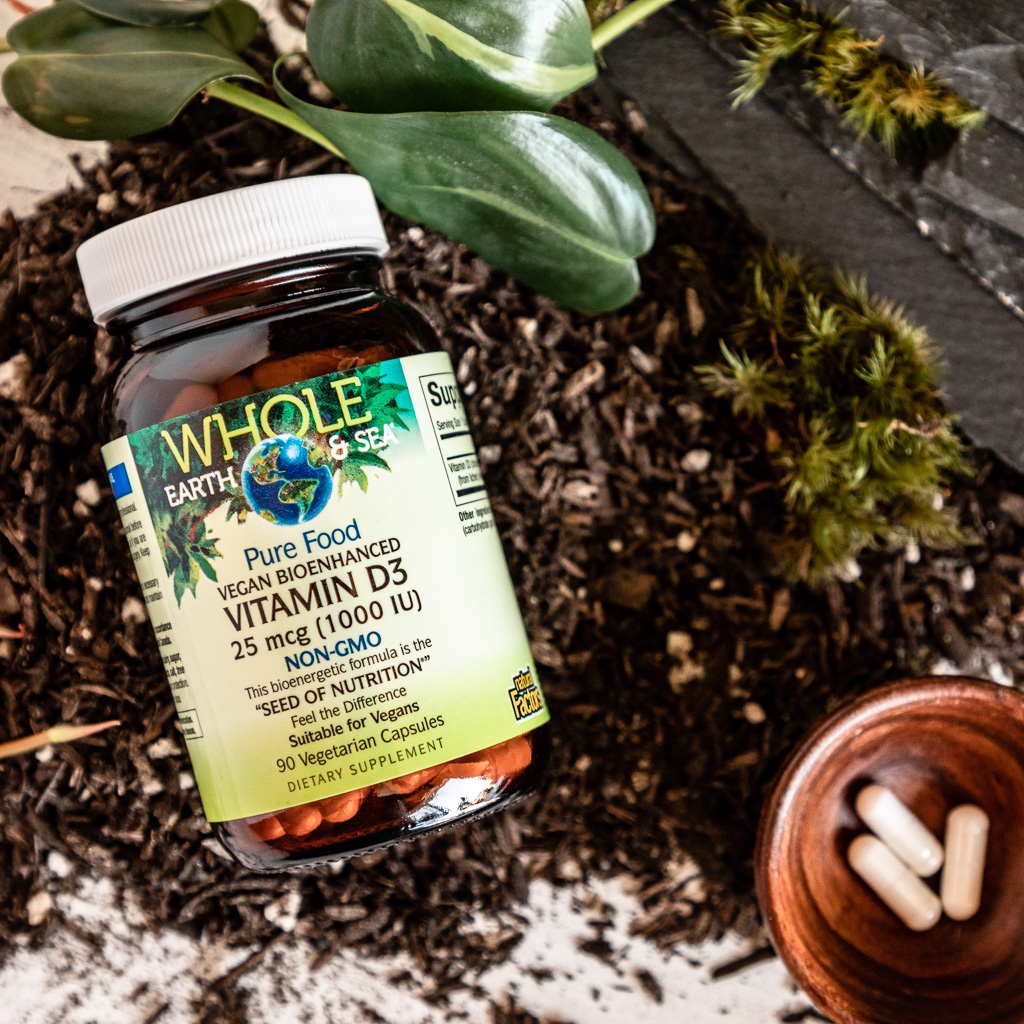
Let’s Talk About Vitamin D Doses
Now comes the subject of dosing.
I should start by reiterating that Vitamin D is a fat-soluble vitamin…
This means two things:
- It does build-up in your system over time and you can overdose, and
- You’ll want to take Vitamin D with a “healthy fats” snack (or meal) to maximize absorption.
- (This can be as simple as a handful of almonds)
For these reasons, and more:
It’s smart to begin a Vitamin D regimen under the direction of a doctor or naturopath. They are the only ones able to check your pre- and post-blood levels and test specific dose effectiveness.
That said, there are three things to know when finding a vitamin dose:
- Defined Daily Dose (DDD),
- Therapeutic Dose, and
- Upper Limit (UL)
Let’s start with the Defined Daily Dose (DDD)
You know when a nutrition label says: “100% Daily Dose of Vitamin __”?
This is the Defined Daily Dose.
The bad news?
These dosage recommendations haven’t been reevaluated (or changed) since the early 1970s.
Essentially:
The DDD is the smallest dose required to prevent major diseases… (Such as rickets and osteomalacia for Vitamin D)
Not great.
Remember all of those other benefits listed for Vitamin D?
- Immune support,
- Tooth attachment, and now
- (potential) COVID-19 protection
These are only achieved with excess vitamin D in your system.
In short: the minimum daily dose is doing your body (surpriiiise) the bare minimum.
Don’t believe me?
Researchers have been calling for the recommended levels to be increased for years now.
Next, we have Therapeutic Doses:
If the DDD was the bare minimum, you can guess what the next step up would be:
That’s right:
A “therapeutic dose” is the quantity needed to cure diseases or reverse deficiencies.
Now we’re talking!
Therapeutic doses aren’t solely about maintaining healthy levels… This is about getting levels up to where they need to be, and fast.
Lastly, we have the Upper Limit dose:
At the furthest end of the spectrum, we have the upper limit. (Sometimes called the “Tolerable Upper Intake Level”)
Why is this number important?
All you need to know is:
Stay far away from the upper limit dose, unless directed by a healthcare professional.
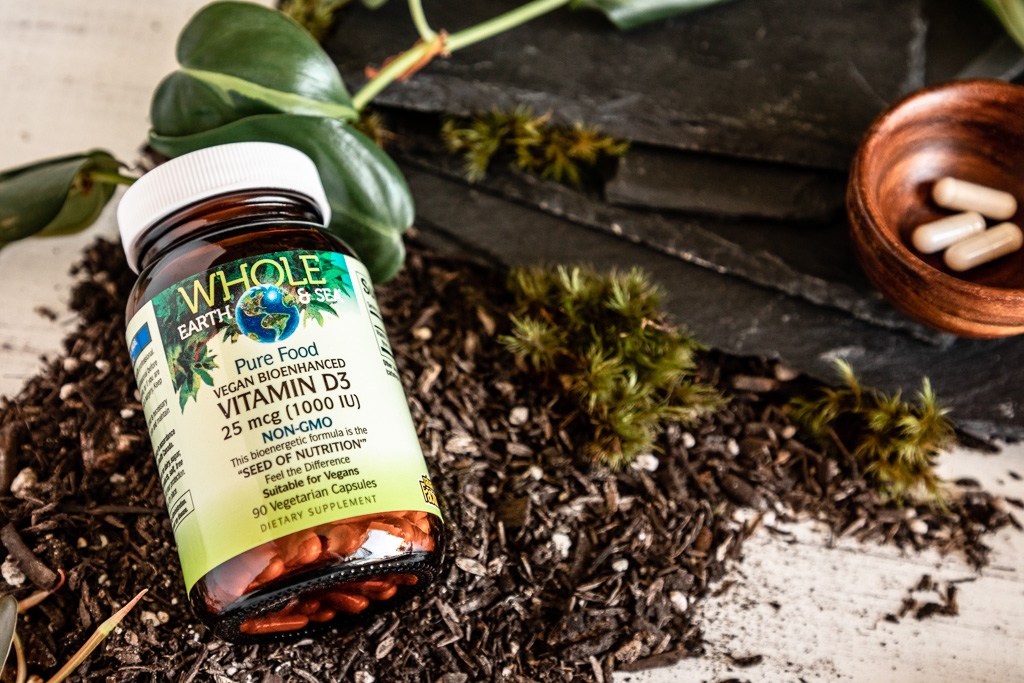
So, What Are the Specific Doses for Vitamin D?
Now that we know what each dosage means, let’s get to specifics.
According to the studies I’ve found, their recommended dosages follow:
- The Defined Daily Dose (DDD) for Vitamin D is:
- 600 IU for ages 1 to 70 years, and 800 IU for people over 70 years.
- (Remember this is the bare minimum)
- Therapeutic doses for Vitamin D would be closer to:
- This study concluding that:
- The Upper Limit:
Other studies have also shown interesting things like:
- Daily, low-doses didn’t raise deficient levels, while
- “Weekly, high-dose supplementation significantly increased […] vitamin D levels” ¹ ² ³
In short:
It’s impossible to give a precise dose without knowing individual factors.
Use the dosages listed above to find a regimen that works best for you.
- Will you forget to take something if it’s only once a week?
- Take a smaller, daily dose (closer to the 1,000-2,000IU range, according to the above studies)
- Prefer getting the most bang-for-your-buck?
- Consider taking a larger, weekly dose and be mindful to stay clear of the upper limit.
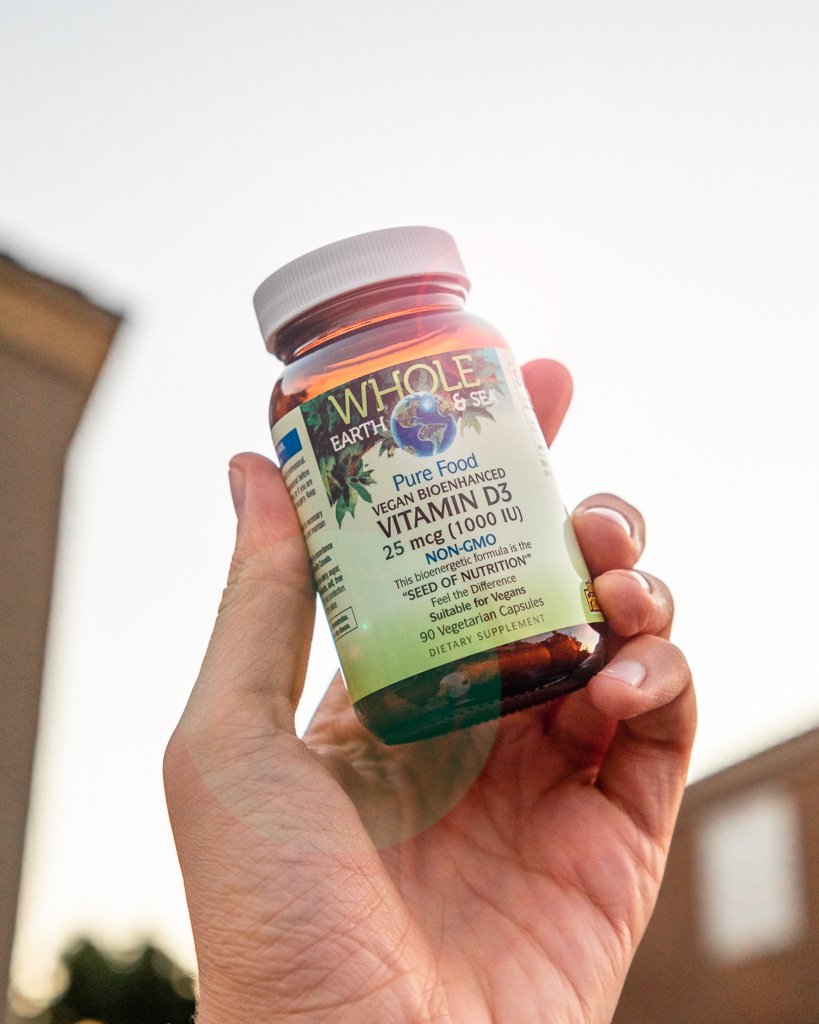
But What About Sunlight?
Finally! The part I’ve been promising:
What about getting Vitamin D from the sun?
First off:
Sunlight is the absolute best way to improve vitamin D blood concentration.
The reason?
Sunlight is near-instantaneous… as opposed to supplemental vitamin D first needing to be “activated”
With that said:
I live in the sunniest state in the country: Arizona.
With 3,806 hours of annual sunlight, you’d think we’d set records with our Vitamin D levels… Right?
Surprise:
According to an eye-opening study: Over 25% of people were deficient… In the brightest state in the country.
The researchers concluded:
If we aren’t getting enough Vitamin D: there’s a good chance you aren’t, either.
Finally: My Favorite Vegan Vitamin D Brands Revealed:
Whole Earth & Sea Vegan Vitamin D3
How would I review Whole Earth & Sea Vegan Vitamin D3?
Pros:
- Lichen-sourced (Plant-Based) Vegan D3
- Trusted company,
- Great price
Cons:
- They are capsules, not containing any fats or oil: so be sure you take this with a snack or meal for maximum absorption.
Find Their Formulations on Amazon:
Garden of Life mykind Vegan D3
How would I review Garden of Life mykind Vegan Vitamin D3?
Pros:
- Lichen-sourced (Plant-Based) Vegan D3
- The spray-version is oil-based (aiding in absorption)
Cons:
- The chewable does not contain any fats or oil: so be sure you take this with a snack or meal for maximum absorption
Find Their Formulations on Amazon:
Country Life Vegan D3 Softgels
How would I review Country Life Vegan Vitamin D3 Softgels?
Pros:
- Lichen-sourced (Plant-Based) Vegan D3
- These soft gels contain sunflower oil, aiding in absorption
Find Their Formulations on Amazon:
Naturelo Vegan Vitamin D3
How would I review Naturelo Vegan Vitamin D3?
Pros:
- Lichen-sourced (Plant-Based) Vegan D3
- Great price
Cons:
- They are capsules, not containing any fats or oil: so be sure you take this with a snack or meal for maximum absorption
- Not familiar with the company, cannot vouch for their independent safety or testing processes.
Find Their Formulations on Amazon:
Deva Vegan Vitamin D3
How would I review Deva Vegan Vitamin D3?
Pros:
- Lichen-sourced (Plant-Based) Vegan D3
- Great price
Cons:
- They are tablets, not containing any fats or oil: so be sure you take this with a snack or meal for maximum absorption
- Not familiar with the company, cannot vouch for their independent safety or testing processes.
Find Their Formulations on Amazon:
Looking to find your next vegan multivitamin? Find that guide here!
Click to Pin-It for Later
